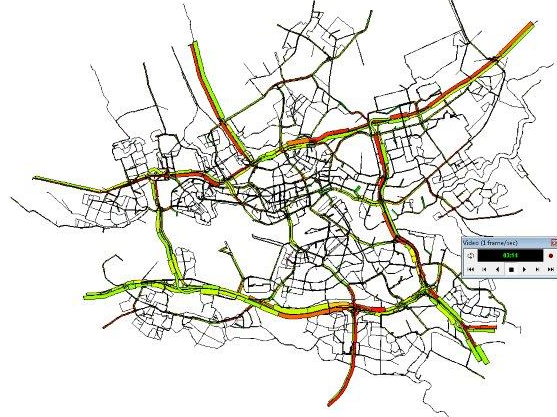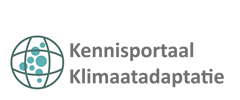Climate change vulnerability analysis of the infrastructure in the Rotterdam-North area
In the context of the INCAH1 project, INCAH researchers and stakeholders have conducted a climate change vulnerability analysis of the infrastructure in the Rotterdam-North area. The analysis spanned the period from August 2013 up to and including April 2014. The regional study was intended to apply the models and calculation methods developed in the INCAH project in a practical situation, and enter into dialogue with stakeholders. The City of Rotterdam, one of the stakeholders, is interested in this with a view to the improvement of the Rotterdam Climate Adaptation Strategy.
1: INCAH: infrastructure and Networks, Climate Adaptation and Hotspots, research project of the Knowledge for Climate programme, carried out by TNO Research, Delft University of Technology, Deltares, VU University Amsterdam, and KWR Water Cycle Research Institute.
Results
The Rotterdam North regional study serves a threefold purpose: (1) conducting a climate vulnerability analysis of the infrastructure, (2) entering into dialogue with researchers, people in the field, and policy-makers, and (3) developing an approach for an integrated vulnerability analysis. Three workshops with the stakeholders constituted the core of the regional study. During these workshops, feedback was provided on research results. In addition to the coordination of sub-studies, a discussion of the research results also generated points for improvement and recommendations for follow-up studies. Furthermore, the information supply and demand of stakeholders and researchers have been coordinated.
The main results of the INCAH Rotterdam North regional study are: insight into the vulnerability of three infrastructure networks, and the development of an approach to an integrated vulnerability analysis. A flood scenario has been used to this end. On the fifth day of the flood, we examined the network of roads, electricity, and the mains. Vulnerable types of infra networks are medium-voltage stations, transformer kiosks, low-voltage cabinets, the mains, and large sections of the roads. The mutual dependencies of the various infra networks and the cascade effects result in a major impact in the event of an area being flooded. The climate vulnerability of the power grid, roads, and the mains could lead to power failure, road subsidence, and damage to and/or destruction of the mains. This causes economic damage and constitutes a potential health risk to society.

Illustration: The impact of extreme weather on the through-flow of traffic on the Rotterdam ring road (source: TNO)
Developing this integrated vulnerability analysis required the completion of a process. The approach developed comprises the following elements:
- Selection: selecting a case, stakeholders, researchers.
- Workshops: gathering the main regional stakeholders and researchers in order to enter into a mutual dialogue during three workshops. This enables all the parties involved (researchers, people in the field, and policy-makers) to develop and exchange know-how, inter-liaise, and exchange views and perspectives.
- Focus on questions: focusing on questions from stakeholders in the workshops has instigated the stakeholders to join in the process and continue to participate.
- Preparation: coordinating consultations for researchers and organisers.
An integrated infrastructure vulnerability analysis calls for multi-disciplinary expertise from various researchers and stakeholders, from network managers and owners. Stakeholders are needed to prepare the research results for use in actual practice. Coordination of information supply and demand is essential to this end.
Contact person
Nienke Maas
TNO
+31(0)6-46847246
nienke.maas@tno.nl
